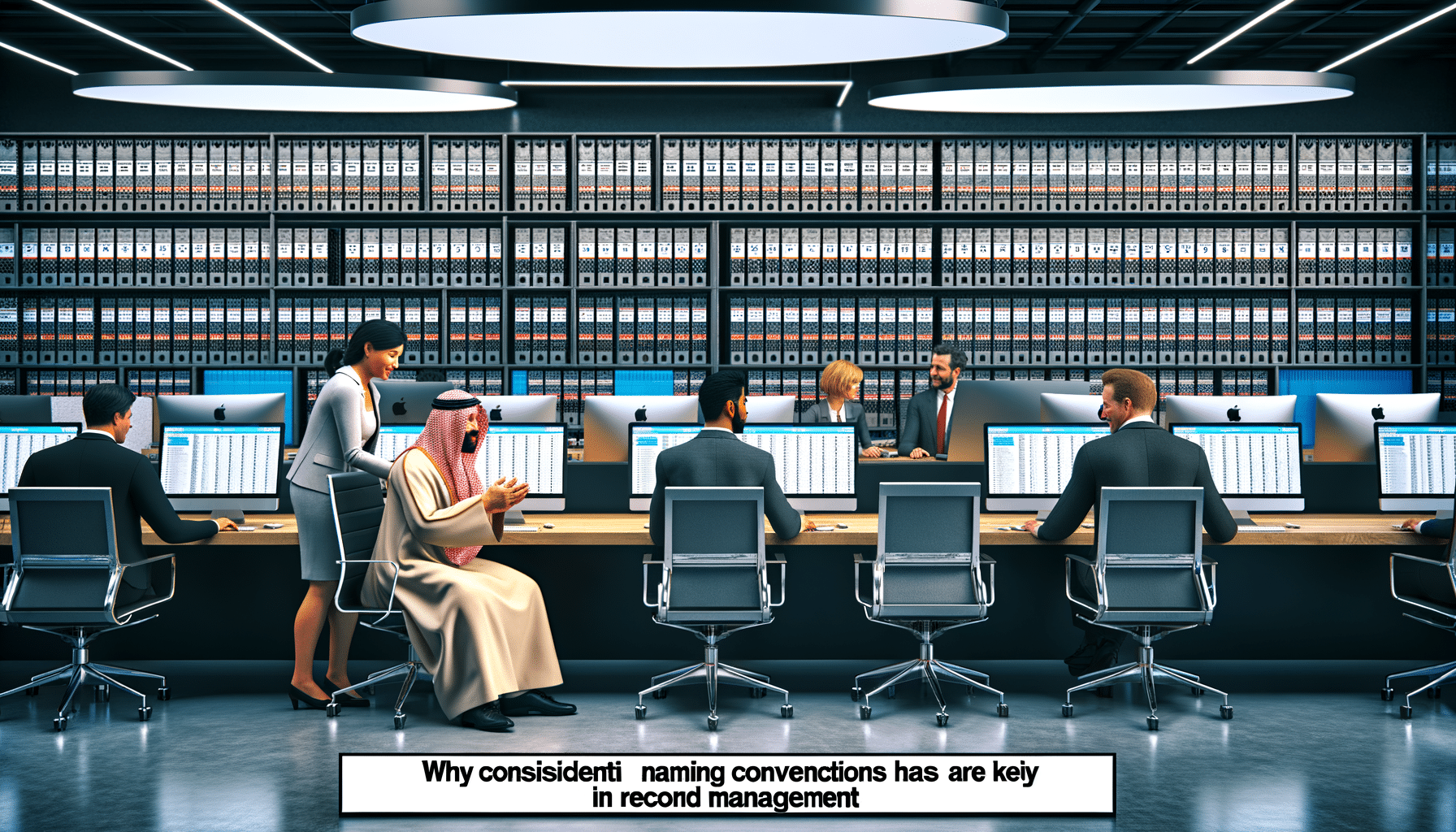- Standardization
- November 16, 2024
Using RecordsKeeper.AI to Unify Record Standards

Welcome to the world where record management transforms from a cumbersome chore into a strategic powerhouse. As the founder of RecordsKeeper.AI, I have had the privilege of watching how our cutting-edge platform disrupts conventional record management by leveraging AI and blockchain technologies. Today, I aim to shed light on our relentless pursuit of standard unification in record-keeping, an area so vital for legal, finance, and compliance heads entrenched in the responsibilities of maintaining organizational order.
A Unified Standard: The Bedrock of Modern Record-Keeping
From the outset, I have been driven by one mantra: simplicity scales. When organizations adopt disparate record-keeping norms, chaos ensues, leading to inefficiencies and even compliance pitfalls. The task of unifying record standards is not just about increasing efficiency; it’s about safeguarding the integrity of information flow across an entity.
The Imperative of Standard Unification
Unifying record standards is a necessity rather than a luxury. When organizations operate without standardized records, they face:
- Inconsistent Data: Mismatched data formats create gaps that disrupt workflows and decision-making.
- Inefficient Processes: Lost time searching for, correcting, or reconciling records results in decreased productivity.
- Compliance Risks: Fragmented records increase the threat of regulatory breaches, penalties, and reputational damage.
RecordsKeeper.AI tackles these challenges head-on by creating a consistent framework for data management within and across organizations.
How RecordsKeeper.AI Facilitates Standardization
I’ve always viewed standardization not as a final destination but as an ongoing journey. At RecordsKeeper.AI, our approach ensures:
1. Automated Categorization & Retrieval
AI-powered tools classify and tag records automatically, making them effortlessly retrievable through intuitive, natural language queries. This automation eliminates subjective human bias from categorization, ensuring uniformity.
2. Secure Data Rooms
Every file, no matter how sensitive, is shared in secure data rooms with controlled access and real-time activity tracking. The robust security protocol ensures that only those who need access have it, maintaining consistent oversight across the board.
3. Compliance Management
Navigating an ever-evolving regulatory landscape is crucial for our users. By automating regulatory workflows, RecordsKeeper.AI guarantees adherence to industry standards like GDPR, HIPAA, and SOX. This constant state of compliance instills confidence and reliability in our records management.
Blockchain: The Guardian of Data Integrity
Our integration of blockchain technology is perhaps the most transformative aspect. By providing a tamper-proof, immutable method of record documentation, blockchain serves as the ultimate guardian of data integrity. This is achieved without a trace of ambiguity, supporting the push for unified record standards with unquestionable credibility.
Why Legal, Finance & Compliance Heads Should Prioritize Unified Standards
Operational leaders within legal, finance, and compliance realms recognize the significance of uniformity. My experiences echo their concerns and reinforce the importance of achieving regulatory harmony through record standards that match across departments, jurisdictions, and global offices. This unity not only resonates through compliance but reverberates through efficiencies gained from unified record-keeping.
Looking Forward: A Future of Harmonized Record Management
It’s tempting to think of standardization as a one-time project. However, true unification demands constant calibration, an approach thoroughly encapsulated within RecordsKeeper.AI’s functionalities—regular backups, policy management, and audit-ready reports. We’re not solely offering a tool; we’re providing a passport to a future where records reinforce rather than hinder decision-making.
Conclusion: Embracing Transformational Change
Joining the journey towards unified record standards signifies more than embracing changes; it’s about seizing opportunities to play ahead of the curve. Dive deeper into the world of RecordsKeeper.AI, where challenges turn into triumphs under the aegis of technological growth. I invite you to explore the myriad advantages that prevail when standards no longer divide but unite.
Stay connected for more insights and innovation as we continue to demystify and simplify record management, transforming it into a core strategic strength for your organization.
Toshendra Sharma is the visionary founder and CEO of RecordsKeeper.AI, spearheading the fusion of AI and blockchain to redefine enterprise record management. With a groundbreaking approach to solving complex business challenges, Toshendra combines deep expertise in blockchain and artificial intelligence with an acute understanding of enterprise compliance and security needs.
Related Posts

Why Consistent Naming Conventions are Key in Government Record Management
Discover how standard naming conventions ensure consistency and searchability in public sector records.
- July 20, 2024

Why Data Standardization is Crucial in Government Record Keeping
Understand the importance of standardizing data formats in public records.
- May 20, 2024
Archives
- January 2025
- December 2024
- November 2024
- October 2024
- September 2024
- August 2024
- July 2024
- June 2024
- May 2024
- April 2024
- March 2024
- February 2024
- January 2024
- December 2023
- November 2023
- October 2023
- September 2023
- August 2023
- July 2023
- June 2023
- May 2023
- April 2023
- March 2023
- February 2023
- January 2023
- December 2022
- November 2022
- October 2022
- September 2022
Want to get more content like this?
Signup to directly get this type of content to your inbox!!
Latest Post
Document Control for Equipment Maintenance
- January 20, 2025
Managing Records for Multiple Clients
- January 19, 2025
Handling Conference Documentation
- January 18, 2025
Setting Up Department Record Reviews
- January 17, 2025





